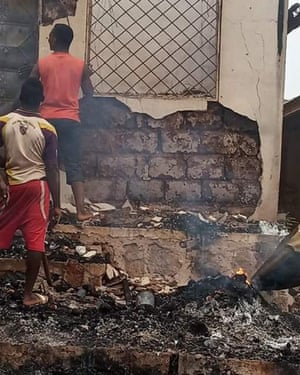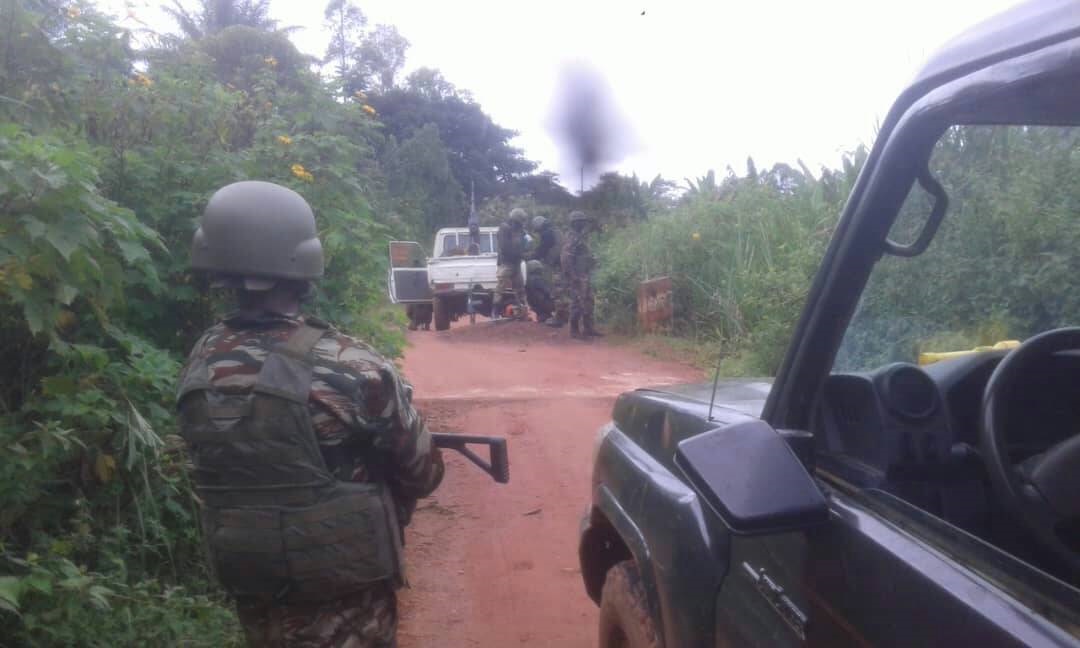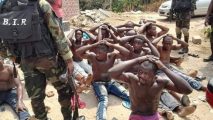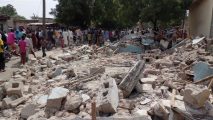28, May 2019
57 Years of Annoying Ambazonians: La Francophonie wants to help Cameroon settle security crises 0
Rwandan Louise Mushikiwabo, Secretary General of the International Organization of La Francophonie (OIF), was received on May 24 in Yaoundé by President Paul Biya. The OIF member came to inquire about the political and security situation in the country, particularly the fight against the terrorist group Boko Haram and the situation in the northwest and southwest regions, according to a Presidential statement.
“I learned a lot, I had a lot of information,” said Louise Mushikiwabo. Leveraging her experience as former Foreign Minister of Rwanda and being a national from the sub-region, the OIF SG recalled that Cameroon is a “base country” for Central Africa and needs peace and stability. She promised Cameroon can count on the support of La Francophonie since the organization is willing to help the country find solutions to its current challenges “in a useful way.”
Cameroon has been experiencing a security crisis in its northwest and southwest regions for the past three years with secessionist claims. After 20 months’ riots, the International Crisis Group counts 1,850 dead, 530,000 internally displaced persons and 35,000 Cameroonian refugees in neighboring Nigeria.
In the Far North, Boko Haram continues to carry out attacks against military and civilians, but the extent of incidents has recently been limited. In the East, the large number of refugees is at the edge of an unstable situation.
According to UNHCR, Cameroon is currently hosting 350,000 refugees from the Central African Republic and Nigeria, with about 10,000 new arrivals since the beginning of 2018.
Source: Business in Cameroon
































28, May 2019
Teachers Protest Escalating Violence in Southern Cameroons 0
As students in Cameroon began their annual exams Monday, hundreds of their teachers in English-speaking regions were on the streets protesting. The teachers are demanding better security after three teachers and a student were abducted, adding to scores captured, killed, or whose property was torched during a two-year separatist conflict.
Teachers dressed in dark clothes and holding signs demanding better security walk down a street in Bamenda, the capital of Cameroon’s northwest region.
While their students take end of year exams, the teachers are underscoring that the region’s schools are under attack.
A wave of school abductions and killings in the region’s separatist conflict has shaken the teachers, who have been protesting daily since Friday.
“We are tired. Lord, help the teachers of Cameroon, help the teachers of northwest. We do not know what to do, we do not know where to go,” says a teacher.
Thirty-one-year old teacher Wontai Vondou Olivier was beheaded here last week, and his head dumped on the street.
A video allegedly filmed by Wontai’s murderers has been making rounds on social media. In the video, Wontai begs for his life while his captors say they have caught a spy and will cut off his head.
In another post, suspected separatist fighters say Cameroon troops killed the teacher to frame the rebels.
General Robbinson Agha denies the military could be responsible and points at the rebels.
“They behead. They cut off the heads of the soldiers here and then send on social media. Not only do they do that, they attack the houses of the soldiers and then destroy their properties,” he said. “Despite all of that, the soldiers and the forces of law and order stay disciplined. The moral psychological and physical torture is not easy.”
Rights groups say both sides — the military and separatists — are guilty of atrocities in the conflict.
Schools, seen by rebels as organs of Francophone dominance, are among the worst hit in the uprising by English-speaking separatists. Hundreds of teachers have been killed, wounded, abducted for ransom, or had their houses torched.
“We need a minimum of security to be able to exercise our profession,” said Semma Valentine, who is with Cameroon Teachers Trade Union (CATTU). “Teachers are at the risk of their personal integrity. Why are we being victimized? Why are we unable to exercise the profession for which we were trained?”
Roland Ngwang, the highest secondary education official in the northwest region, says, despite the security risk, teachers should continue working.
“The situation is sufficiently painful and very serious, but my appeal has been that let us be calm. Let’s be calm,” he said.
And as the teachers protested Monday, hundreds of students at Government Bilingual High School Bamenda began taking their exams, under close watch by heavily armed troops.
Source: VOA